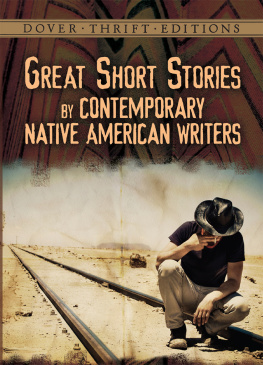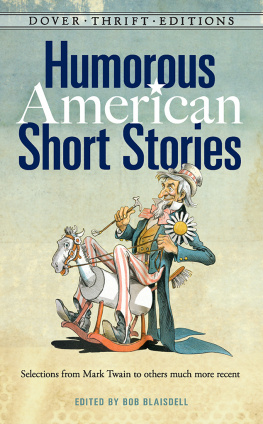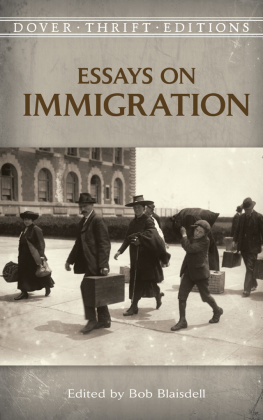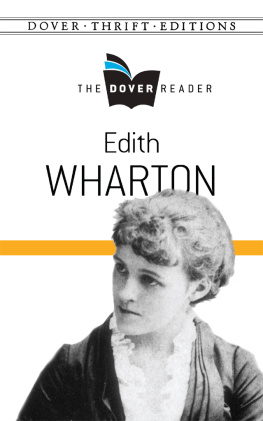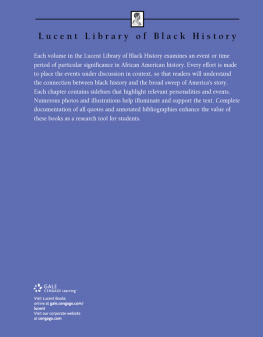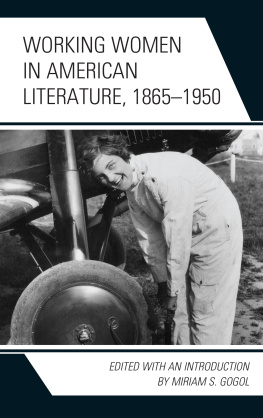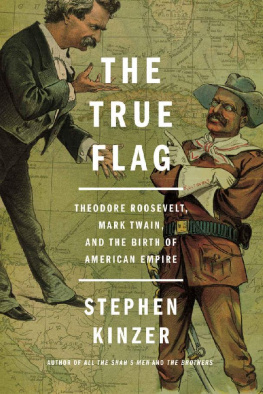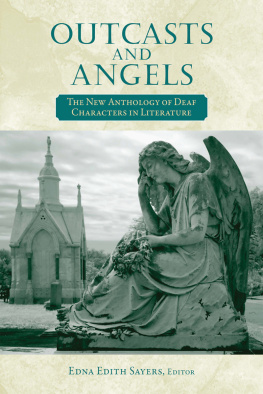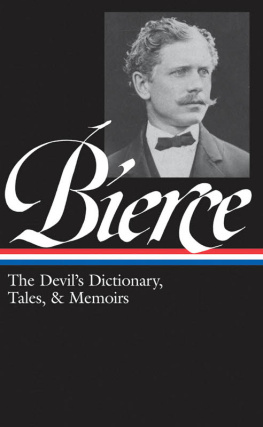
The Dover Anthology of American Literature
Volume II
From 1865 to 1922
EDITED BY BOB BLAISDELL

DOVER PUBLICATIONS, INC.
Mineola, New York
DOVER THRIFT EDITIONS
G ENERAL E DITOR : M ARY C AROLYN W ALDREP
E DITOR OF T HIS V OLUME : S USAN L. R ATTINER
Copyright
Copyright 2014 by Dover Publications, Inc.
All rights reserved.
Bibliographical Note
The Dover Anthology of American Literature, Volume II: From 1865 to 1922, first published by Dover Publications, Inc., in 2014, is a new anthology reprinted from standard sources. For the sake of authenticity, inconsistencies in spelling and punctuation have been retained in the texts unless otherwise indicated.
Library of Congress Cataloging-in-Publication Data
The Dover Anthology of American Literature, Volume II : From 1865 to 1922 / edited by Bob Blaisdell.
pages cm. (Dover Thrift Editions)
Summary: At the end of the Civil War, another long and arduous struggle began as the nation attempted to reunite. Literature offered a path toward solidarity, and this concise anthology surveys the writings of major American authors from the wars end to the dawn of the Jazz Age. Featured works include those of Emily Dickinson, Wallace Stevens, William Carlos Williams, Robert Frost, Langston Hughes, and other poets. Mark Twain is prominently represented among the storytellers, along with Ambrose Bierce, Stephen Crane, and F. Scott Fitzgerald. Three short novels appear in their entirety: Daisy Miller by Henry James, The Call of the Wild by Jack London, and Ethan Frome by Edith Wharton. Speeches by Sitting Bull and Theodore Roosevelt, memoirs by Booker T. Washington and Helen Keller, and many other selections recapture a vibrant era in American literature. Informative introductory notes and suggestions for further reading supplement the authoritative texts. Provided by publisher.
Includes bibliographical references.
Volume I: eISBN-13: 978-0-486-79901-8
Volume II: eISBN-13: 978-0-486-79889-9
1. American literature. I. Blaisdell, Robert, editor of compilation.
PS507.D68 2014
810.8dc23
2014010332
Manufactured in the United States by Courier Corporation
78077501 2014
www.doverpublications.com
Contents
NOTE
T HIS SECOND VOLUME of the anthology begins with the end of the Civil War (18611865), a catastrophe that devastated and necessarily recast the nation. One of the ways in which the states became united again was through literature. With universal education the rule, America became super-literate; reading was the great technology. Readers hungered for printed words, so books, magazines, and newspapers proliferated. The unofficially crowned prince and princess of American literature, Mark Twain and Emily Dickinson, helped change what the nation and the world thought of as peculiarly American writing. That is, it was colloquial, quick, irreverent. There was nothing and no one like Dickinson or Twain anywhere else.
Notwithstanding Walt Whitman, Emily Dickinson is certainly the highlight of nineteenth-century American poetry; she sang of herself all the way to the other side of the spectrum from Whitmans Song of Myself. It sometimes seems his colossal ego needed the weight of all mankind to balance himself. Whitmans formula for success was the opposite of Dickinsons quiet self-scrutinizing reserve, and so its appropriate we start with her poetry and with her letters that tentatively reached out to a Civil War hero (Thomas W. Higginson, an outstanding writer himself, who helped bring Dickinsons work to light after her death in 1886). The first of a number of selections by Mark Twain begins with his comic recollections of how he started his writing career in a newspaper office in Nevada mining-country. The last selection of Twains work is a speech; public speaking was a comic sideline he carried on all over the world.
One story of the development of American literature is that it discovered itself by going overseas to Europe; Twain himself was hugely popular in England and he trotted the globe lecturing, learning, and looking for material. Henry James, on the other hand, is Americas novelist of its European expatriate communities. But America didnt discover as much about itself from those Americans writing home from Europe as it did from European immigrants. The tremendous influx of immigrants continually enlivened the language and complicated and deepened the nations psychology. Immigrants then and now reminded America of what it was, is and ought to be. We also see in fiction and in selections from memoirs (e.g. Rose Cohens) the rapid effects of America on individuals and cultures. Admittedly, all of the contributors but one, the great Sioux chief Sitting Bull, are immigrants or descendants of immigrants. Sitting Bull tells us in eloquent speeches how Native Americans saw their lands disappear as European Americans swept across the country and the U.S. government claimed natives territory or broke treaties.
By the end of the nineteenth century, literature by African American authors found multiple audiences; their writing helped unite black Americans in literary and educational communities. Fiction by Charles W. Chesnutt and Paul Laurence Dunbar appeared in major magazines while nonfiction by social reformers, among them the controversial Booker T. Washington, challenged white Americans to reconsider thoughtless prejudices and legal inequalities.
Though Emily Dickinson was shy about publication of her work, many other women authors of her time werent. We present several masterful short stories by, among others, Mary E. Wilkins Freeman, Charlotte Perkins Gilman, Kate Chopin and Willa Cather. Gertrude Stein, arguably the most influential experimental American writer of the twentieth century, contributes an amusing and characteristically intriguing dialogue.
Memoirs and autobiographies were among the popular American genres, as they are today, and we have included excerpts from a few, most notably Helen Kellers and Ulysses S. Grants. Blind and deaf, Keller tells of learning how to speak, read, and write; her story was and is amazing and inspiring. The former President and Civil War general Grants remarkable plainspoken memoirs were only written under duress at the end of his life, but were immediately, immensely, deservedly popular.
Students and readers unfamiliar with American literature should remind themselves that much of the best of our writing reads colloquially, in the lively common language of speech. Ever since Benjamin Franklins first-person skits and sketches in the early eighteenth century, American literature (continuing into the twenty-first century in the work, for example, of the extraordinary Junot Daz) has thrived on the voice of natural conversation. So if the American dialects in the work by Twain, Chesnutt, or Chopin, among others, seem challenging, read it aloud! You will hear the sense lift up off the page.
We have included three short novels, among the most captivating in American literature after Herman Melvilles, namely Daisy Miller by Henry James, The Call of the Wild by Jack London, and Ethan Frome by Edith Wharton.
We have ordered the selections chronologically, after a fashion. That is, the first publication by a particular writer determines his or her works chronological appearance; we bunch the other selected works (if any) by that author in chronological order after the first one. This somewhat loose arrangement allows us to watch the procession of works and writers as they make their entrances on the literary scene. We witness Langston Hughes, one of the most important writers of the twentieth century, get his start in 1921, as a nineteen-year-old, with the acclaimed The Negro Speaks of Rivers. The chronological arrangement also lets us be struck by the unprecedented and never again equaled florescence of American poetry in the 1910s: in that decade, Ezra Pound, William Carlos Williams, Robert Frost, Wallace Stevens, T. S. Eliot, H.D., and Carl Sandburg wrote so many great poems that were reminded or freshly persuaded that there really are golden ages in the arts.


